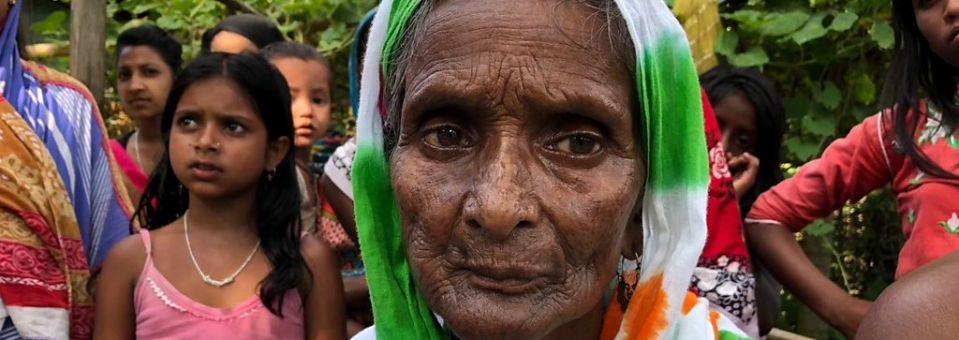Statelessness in Assam
Frontline is investigating the hugely underreported crisis of impending statelessness in the Indian province of Assam. Joined by the United Nations Special Rapporteur on Minority Issues Fernand de Varennes, and reporter Alaphia Zoyab of Avaaz, we’ll be looking at how citizenship rights are being questioned on a mass scale, and individuals are being forced to prove their eligibility to stay in their homes.
Assam’s Bengali community – both Hindu and Muslim – are no strangers to the rhetoric of xenophobia. Since the war of ‘Liberation’ with Bangladesh in 1971, the arrival of migrants to Assam has been a central theme in regional politics, sometimes with violent consequences. In the eighties, Muslims of Bengali origin found themselves under sustained attack by groups such as the ‘Assam movement’. Today, millions of Assam’s inhabitants are having to provide evidence that they deserve to stay.
The state began re-drafting its National Register of Citizens in 2014, for the first time since 1951, as part of a campaign to identify undocumented migrants from neighbouring Bangladesh who had settled in the province. The entire population of the province is around 32 million people. To establish who has legitimate citizenship is a mammoth task of bureaucracy. The first draft awarded citizenship rights to 19 of those 32 million. A second draft still left out 4 million people – and many more could now come under scrutiny again.
“While there is not yet a precise breakdown regarding those excluded from the list, it appears that most are from ethnic, religious and linguistic minorities, and in particular Muslims and Hindus of Bengali descent,” Fernand de Varennes, Special Rapporteur on minority issues.
To understand the processes at work, and the politics that underpins them, we’re joined by two experts with different backgrounds to shed light on the complex situation. As the 2019 Indian general election approaches, contested ideas of who – and who isn’t – an Indian citizen are likely to come to the fore, making this issue more relevant than ever.
Speakers
Fernand de Varennes is Dean of the Faculté de droit at the Université de Moncton in Canada and Extraordinary Professor at the Centre for Human Rights of the University of Pretoria in South Africa. He was appointed United Nations Special Rapporteur on Minority Issues by the Human Rights Council and assumed his functions on 1 August 2017.
Alaphia Zoyab is a senior campaigner at the global campaigning organisation Avaaz who has been following the story in Assam and lobbying for action by the UN. She is a journalist by training having worked at India’s leading news station – NDTV. At Avaaz, Zoyab has campaigned to stop the Murdochs buying 100% of Sky, campaigned to strengthen laws against honour killing in Pakistan and urged the UN to issue an early warning of the humanitarian crisis that could unfold in Assam. She has two masters degrees in Mass Communication and International Affairs, and a Bachelors in English Literature.
Photograph courtesy of Avaaz




